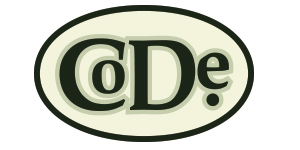- April 22, 2011
- Posted by: Code Interactive
- Categories: Business plans, Economics, Finance & accounting, Franchising
 Juggernaut is the most important book of its kind since Economics in One Lesson and even challenges that masterpiece as a grand survey of economic science and theory. In a sweeping survey of history and financial theory, Morse has produced a must-read that will change the political landscape if there is any justice.
Juggernaut is the most important book of its kind since Economics in One Lesson and even challenges that masterpiece as a grand survey of economic science and theory. In a sweeping survey of history and financial theory, Morse has produced a must-read that will change the political landscape if there is any justice.
First and foremost, “Juggernaut” presents a paradoxical theory of modern times: the system (money-based commerce, fiat government, specialization) is failing and in order to fix it, one must participate and fuel those same broken institutions. Morse’s original theory that the close of the frontier (and subsequently the closing of the economy) led to the zero-sum system we have and its inevitable problems. As Morse succinctly points out, if you want to participate in society (and you have no choice in the matter today because there is no free land to escape to as in the Age of Exploration), you have to pay your dues to the system, making it even more powerful and irresistible.
Second, the book is a compelling history of those institutions, from the School of Salamanca, which first formulated laissez-faire capitalism as a viable system, through the Industrial Revolution and the peak of unfettered corporations, to the Socialist revolution and the rise of the present-day welfare state. I have read no other book with such a comprehensive analysis on all of those important players in societal influence. It is a fair assessment of all sides of politics, from libertarianism to Marxism, which is absolutely unheard of in today’s strictly partisan political climate.
Third, “Juggernaut” is a fascinating sociological survey. Morse comes up with great concepts: In order to gain more leisure time, man made the world complex so as to require 10-15 years of schooling, and points out striking truths: government’s restrictions of tobacco while simultaneously subsidizing it is much like digging a whole and filling it back up.
In the end, this is a remarkable book. It is a must read that will benefit you every time you pick it up or discuss the important ideas within.
– Sandy Winnich

